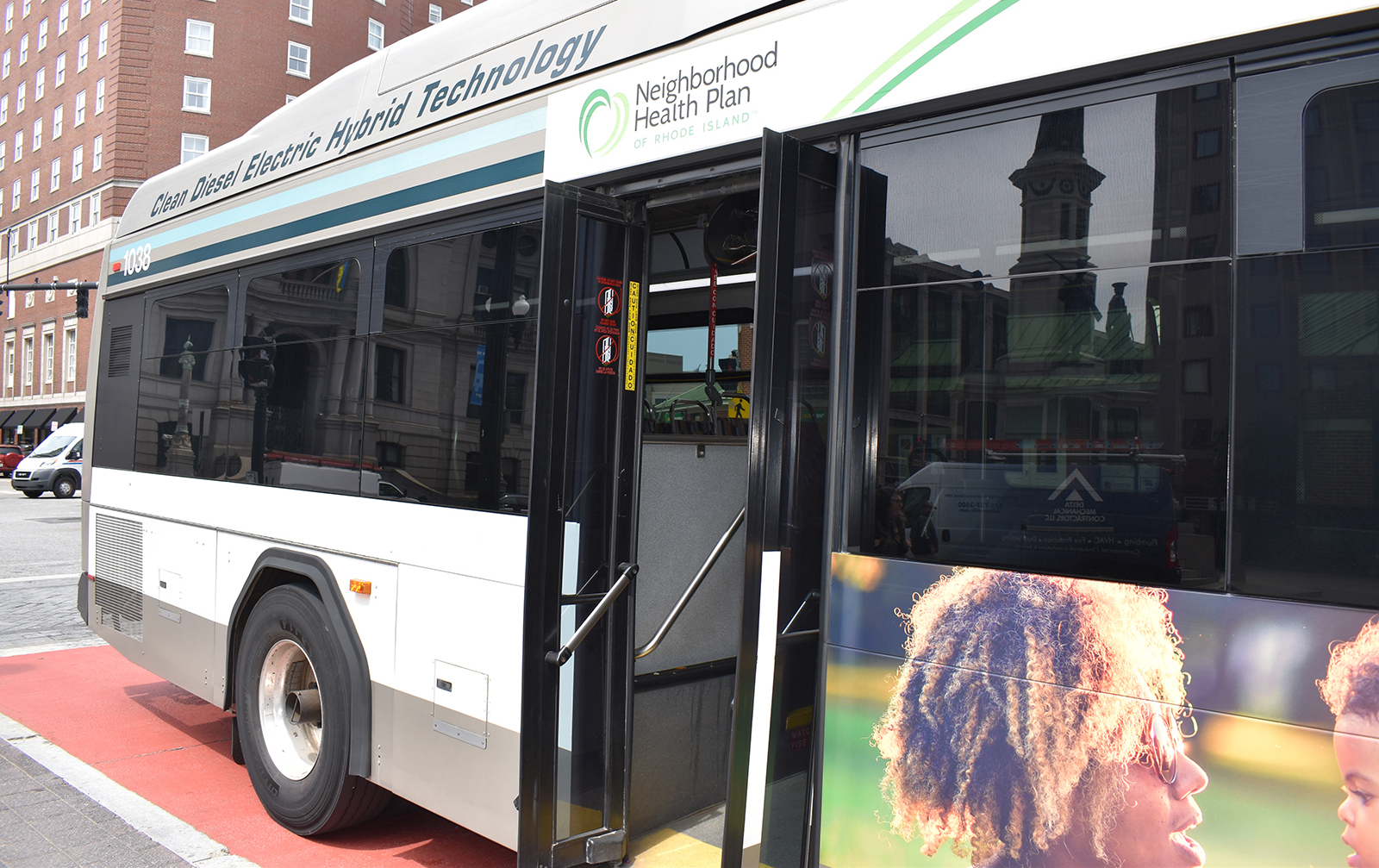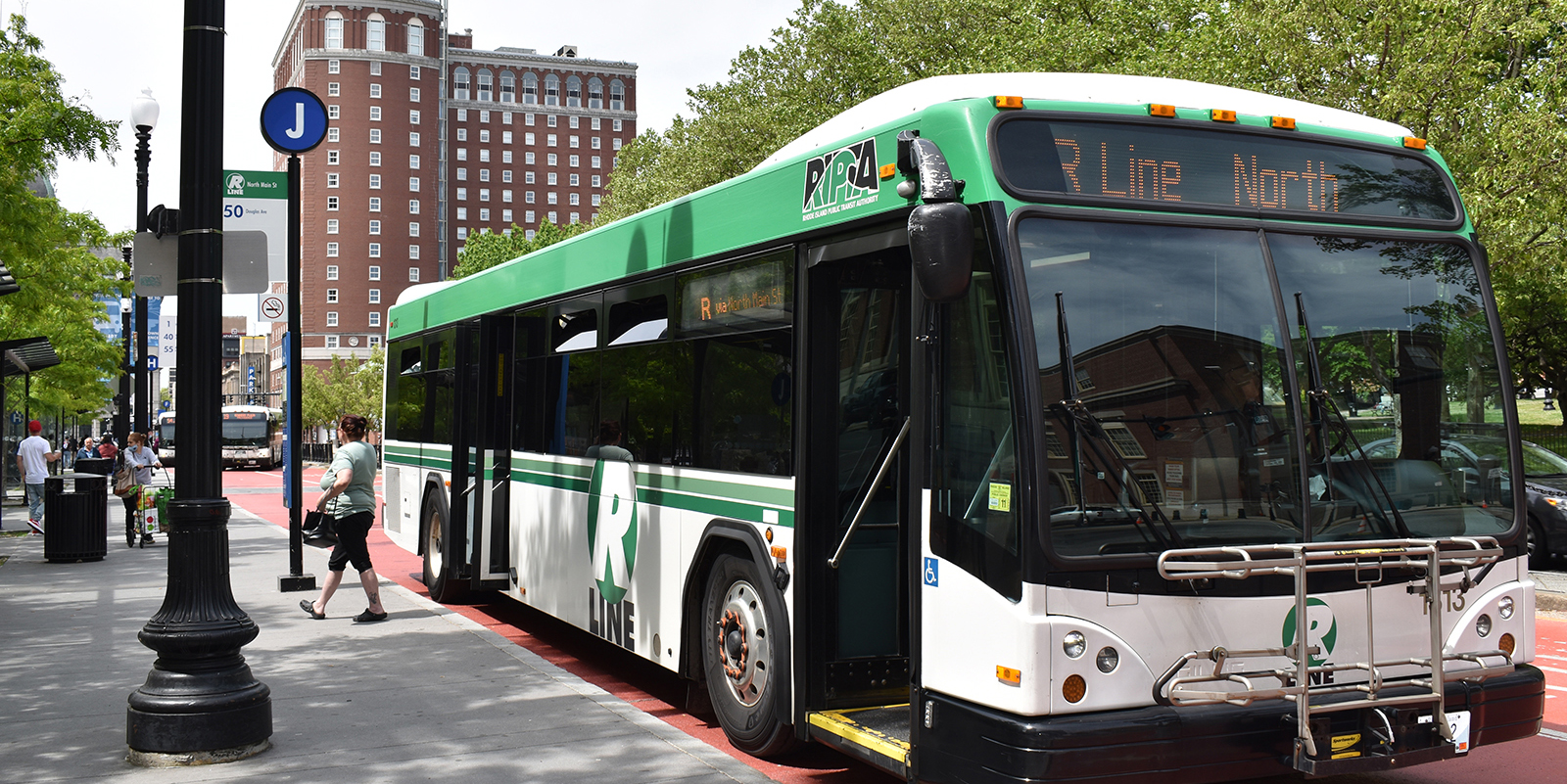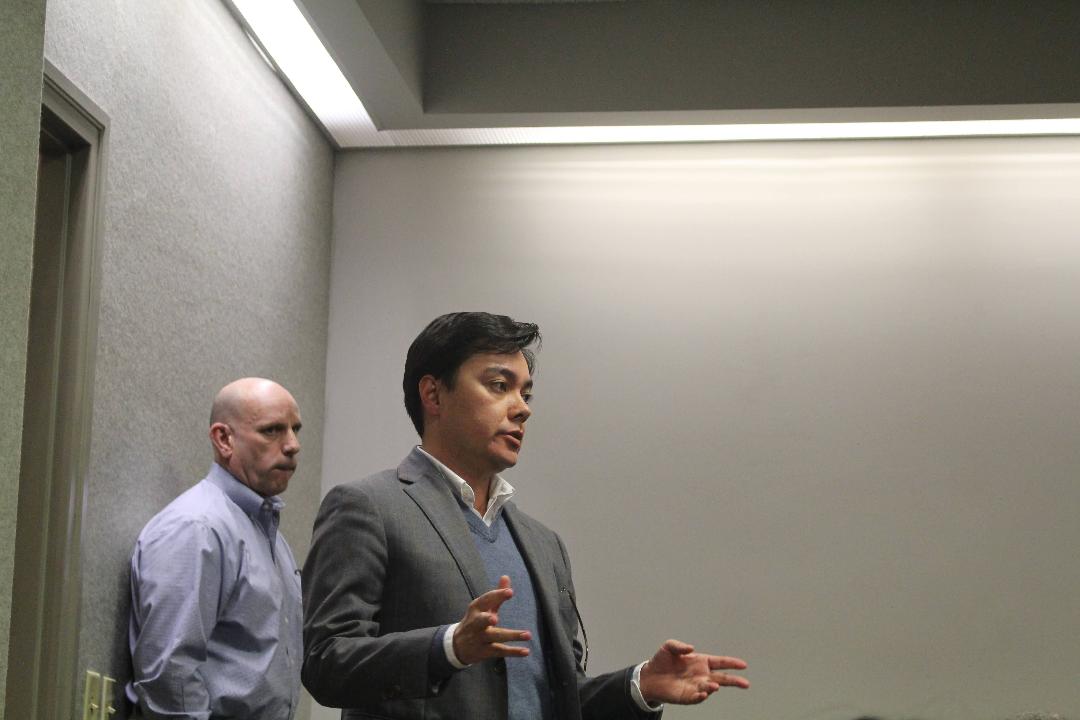Third Kennedy Plaza Redesign Plan in Four Years Again Draws Opposition From Transit Riders
July 30, 2020
Kennedy Plaza is the aorta of the Providence public transit system. But soon, this main artery may be severed.
Efforts to decentralize the longtime bus hub have been in the works for years.
During the past four years, for instance, two proposals to reduce or eliminate bus stops were put forth by the Rhode Island Department of Transportation (RIDOT) and the Rhode Island Public Transit Authority, each dying in gestation. But a third, new plan is in the works, and some RIPTA riders aren’t happy about it.
“Although it is billed as being a transit improvement plan, it actually does not ‘improve’ transportation for bus passengers, but makes the transit experience considerably worse,” according to the Rhode Island Transit Riders. “It will require additional transfers for those riders changing from one bus line to another as not all lines will connect in Kennedy Plaza as they do now. This is inconvenient and is furthermore likely to have exactly the opposite impact that the State hopes to achieve: it will dissuade potential new riders from taking the bus and perhaps reduce the number of current riders who have another way to get to work.”
In a document stating its opposition, the Rhode Island Transit Riders claim: the reorganized Kennedy Plaza would be “inconvenient for passengers;” would move half of all bus lines from Kennedy Plaza to a “remote and inappropriate location;” is a “waste of money;” would “short-change the rest of the state;” and “privileges the voices of the powerful over the less-powerful.”
The latest plan proposed by RIPTA and RIDOT would disperse the main bus hub at Kennedy Plaza to three locations: the Providence train station; Dyer Street in the Innovation District; and two stops at Washington and Dorrance streets on the fringe of the plaza. Plans for a connector tunnel through Kennedy Plaza were recently scrapped.
This multi-hub plan is being presented by RIDOT as a way to “bring employees closer to jobs while eliminating crowding experienced by having one hub.” The state agency also says this new plan “opens up pedestrian linkages to the river walks, East Side, and Newport/Bristol ferry,” among other benefits.
Charles St. Martin, chief public affairs officer at RIDOT, said the multi-hub format fulfills a bond that Rhode Island voters approved in 2014.
“The idea of a coordinated transit system has been discussed for decades,” he wrote in an email. “The conceptual plan that has been put forward fulfills a mandate put forth by the voters of Rhode Island in 2014 when they voted in favor of a $35 million bond issue that specifically required the creation of two bus hubs in addition to Kennedy Plaza. The mandate was for a hub near the Garrahy Court House and one at the train station. This was the will of the people.”
Question 6 on the 2014 statewide ballot, Rhode Island Mass Transit Hub Infrastructure Bonds, for $35 million noted that approval “will allow the State of Rhode Island to issue general obligation bonds, refunding bonds, and temporary notes in an amount not to exceed thirty-five million dollars ($35,000,000) to fund enhancements and renovations to mass transit hub infrastructure throughout the State of Rhode Island to improve access to multiple intermodal sites, key transportation, healthcare, and other locations.”
John Flaherty, deputy director of Grow Smart Rhode Island, noted that while many people would like to see Kennedy Plaza improved, eliminating the central transit hub in favor of a multi-hub system only benefits the few powerful voices pushing for the change.
“I don’t think that many people are happy with the status quo in Kennedy Plaza, as a public space, as a place that is safe and welcoming and inviting,” he said. “It’s heavily dominated by transit. I think that there are ways that this can be addressed, but I think that there’s a balance that could be achieved. They don’t seem to be interested in that. They seem very focused on reducing or eliminating any kind of transit activity in Kennedy Plaza. I think that the administration is bowing to the pressure of a few over the benefit of the many.”
Instead of finding ways to make a central hub work, Flaherty and the Rhode Island Transit Riders fear that pushing for a multi-hub system could make it harder for people who frequently take the bus to get to where they’re going.
“The proposal that keeps surfacing is for much smaller hubs that don’t accommodate all of the transfers, so it essentially makes it more difficult for people who are getting around on transit,” Flaherty said.
According to the Downtown Transit Connector Fare and Service Equity Analysis published late last year by RIPTA, an average of 51.8 percent of riders on downtown connector routes are people of color and an average of 68.3 percent of riders are low-income.
By dispersing the Kennedy Plaza hub to other locations, Rhode Island officials could effectively make transportation more difficult for people who rely on it as their primary means of getting around, according to opponents of the state plan.
“To be honest, the ridership of transit in Rhode Island these days is still largely dominated by people … who don’t have an alternative,” Flaherty said. “I think there’s a feeling that we want to move the poor people out of Kennedy Plaza. No one is saying that, but I think that’s an underlying motivation on the part of at least some people.”
Flaherty also noted that other proposals by the city and from Union Studio Architecture & Community Design and Cornish Associates show that there are viable alternatives that could garner public support.
“There was another plan that was put forth by the city of Providence in 2018 and it was result of a lot of public input,” he said. “There were a lot of voices at the table trying to balance these issues we’re talking about, and that proposal had a lot of public support and stakeholder support and institutional support.”
The city’s 2018 plan kept Kennedy Plaza as a bus hub, but consolidated bus stops, improved safety for people walking and riding bicycles in and around the plaza, improved vehicle circulation, and created a “vibrant public space where residents, workers and visitors can gather and enjoy the city.”
Why this alternative plan went nowhere, Flaherty has no idea.
“I really can’t explain it,” he said. “Back in September I reached out to the city to ask, ‘Why aren’t you backing your proposal? We’re out here advocating for your plan. Why aren’t you?’ But we didn’t really get much of a response on that.”
The latest RIDOT and RIPTA proposal is currently in a stakeholder-evaluation phase, and if it gets the go-ahead, construction is expected to start next summer and stretch into summer 2023.
“There’s been a lot of organized opposition each of the previous two times, so I would imagine that there would be a fair amount this time as well,” Flaherty said.




“The idea of a coordinated transit system has been discussed for decades,” he wrote in an email. “The conceptual plan that has been put forward fulfills a mandate put forth by the voters of Rhode Island in 2014 when they voted in favor of a $35 million bond issue that specifically required the creation of two bus hubs in addition to Kennedy Plaza. The mandate was for a hub near the Garrahy Court House and one at the train station. This was the will of the people.”
Text of bond: Approval of this question will allow the State of Rhode Island to issue general obligation bonds, refunding bonds, and temporary notes in an amount not to exceed thirty-five million dollars ($35,000,000) to fund enhancements and renovations to mass transit hub infrastructure throughout the State of Rhode Island to improve access to multiple intermodal sites, key transportation, healthcare, and other locations.[2]
Nowhere is KP mentioned and the intent of the bill is clearly, as it states, to renovate mass transit infrastructure THROUGHOUT RI.
RIPTA lies.
Amy makes a good point in quoting the actual bond but it is RIDOT that is lying about the bond, not RIPTA.
The only point to this is to move most of the poor people and people of color that use the bus out of KP as property owner and Democratic insider Joe Paolino as openly called for. Its not that Joe is a racist, he feels transit passengers hurt his property values. Since good transit access from all points is the only transportation advantage his property has over suburban competitors it could be better for him to improve transit and Kennedy Plaza (lighting, signage, security, traffic flow…) and the climate, air quality, and state land use would benefit too. But he may get to banish the passengers and hurt the transit system because RIDOT and the Governor seem to be listening only to Paolino and plan to go ahead with no public hearings or public workshops.
"in addition to Kennedy Plaza." So they are lying about their so-called mandate from the voters when the voters backed the transportation bond. They claim the mandate is to eliminate Kennedy Plaza as a bus hub because the bind vote dictated that they do so. How does "in addition to Kennedy Plaza" translate into eliminating Kennedy Plaza?